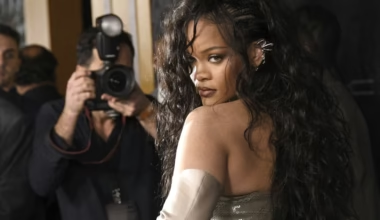David Gilmour, the iconic guitarist and voice behind Pink Floyd’s timeless sound, has never shied away from praising the musicians who shaped his journey. Among those is Eric Clapton—a blues-rock legend in his own right—whose style made a lasting impression on Gilmour, especially during his early years learning the guitar.
Clapton’s Early Blues Work: A Big Influence on Gilmour
In a 2017 interview with Guitar Tricks Insider, Gilmour listed five of his favorite albums of all time. One of those was the 1966 John Mayall & the Bluesbreakers album featuring Clapton. This record came just after Clapton left The Yardbirds and captured a raw, emotional blues sound that stuck with Gilmour.
He admired not just Clapton’s playing, but also the powerful lineup on that album. It included bassist Jack Bruce, who would later team up with Clapton in Cream, and John McVie, who would go on to form Fleetwood Mac. Gilmour appreciated the entire group, saying in a 2015 Relix interview:
“All of those guys were incredible. I spent time trying to learn how to play their licks perfectly… But eventually, your own style pushes through.”
Gilmour’s Early Guitar Lessons: Copy First, Create Later
In several interviews over the years, Gilmour has emphasized one thing to young guitarists: don’t worry about being original right away. Instead, start by learning from the greats.
He often practiced by mimicking blues solos from Clapton, Jimi Hendrix, and even older blues legends like Howlin’ Wolf. In a 2017 interview with UNCUT, he reflected:
“When you start out, you copy. Trying to be too original when you’re too young is possibly not the best thing. I learned by copying Pete Seeger, Lead Belly, Jeff Beck, Clapton, Hendrix… all sorts of people.”
Gilmour believes that copying great musicians teaches you the structure and soul behind each note. Over time, as you absorb different styles, your voice naturally begins to emerge.
Not Just the Past—He Respects the Present, Too
Back in 1985, speaking to Guitar Classics, Gilmour mentioned how he also found inspiration in newer guitarists. He pointed to players like Mark Knopfler and Eddie Van Halen, who brought fresh sounds and ideas into the guitar world.
“I was trying to learn 12-string acoustic like Lead Belly. At the same time, I was trying to learn lead guitar like Hank Marvin and later Clapton.”
Even now, Gilmour says he doesn’t sit down to study other players—but admits that he still gets influenced by them, and if a great lick comes along, he has no problem borrowing it.
The Takeaway: Clapton’s Legacy Runs Deep
For Gilmour, Eric Clapton wasn’t just another blues guitarist—he was part of the foundation. His phrasing, tone, and emotion played a major role in Gilmour’s early growth and continue to be a reference point. That deep admiration remains clear in how he talks about Clapton’s contributions to the genre and guitar culture as a whole.




